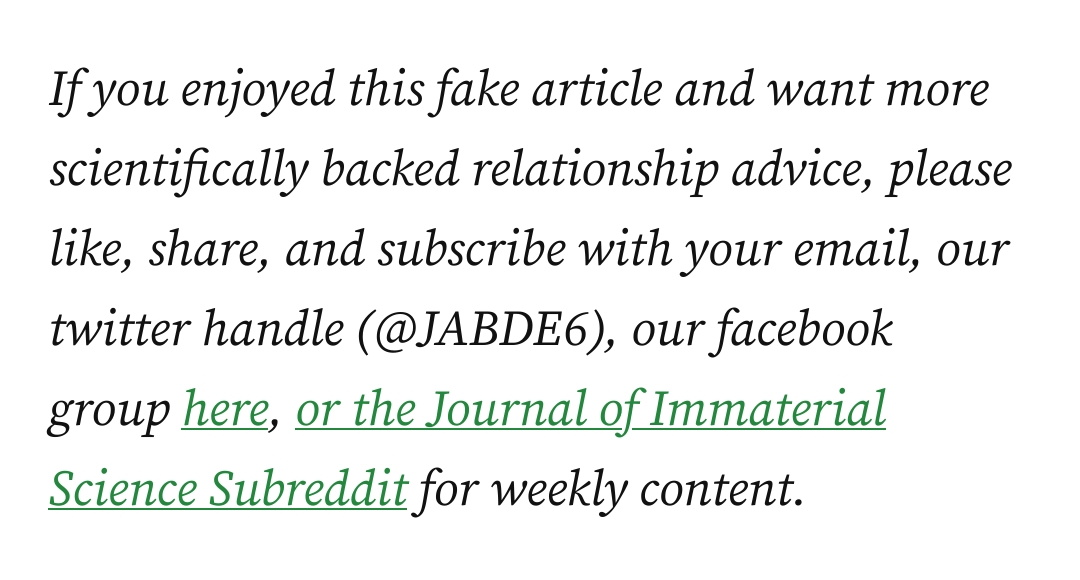We’ve been through some rough times [4-7]
What the heck would those citations be‽
Later in the article he mentions that [7] was a study of her mood swings.
[4] Broman, Chad 2015 Why is Valentine’s Day so Important? A Time Analysis of Tiffany’s Relationship Expectations :: Journal of Psychological Machine Learning
[5] Broman, Chad 2016 A Play by Play Analysis of Purchasing a Luxury Speedboat during an out of Wedlock Pregnancy Scare :: Journal of Psychological Machine Learning
[6] Broman, Chad 2016 The Mood Metric Equivalent Measurement: How to Get Away with a 150$ Bar Tab :: Journal of Psychological Machine Learning
[7] Broman, Chad 2021 A Time Series Analysis of My Girlfriend’s Mood Swings :: Journal of Astrological Big Data Ecology
Chad Broman
Is there more? I kind of want to know more
As discovered from [4], she will not continue to love me if I do not share an equal love for the workplace based drama.
My favorite line
Thanks for letting me find that hilarious journal
I legit would love to discuss sub-Nyquist sampling. I worked in the field for a few years.
Can you eli5 nyquist?
The Nyquist theorem, in very simple terms, describes the minimum measurements you need to take to capture all the information in a signal. It turns out, if you have special information about what signal you expect to see, you can still figure it out using fewer measurements.
Generally speaking, it tells you how many measurements you need to take to capture the whole signal.
Or in terms of practical applications, it explains why CDs are “good enough” and audiophile stuff is very often bullshit.
Instead of actually explaining it, here’s how I like to remember it: If you are measuring something that produces a perfect sine wave, and you can’t take measurements faster than 30 Hz, then you can’t definitively prove that the sine wave repeats faster than that. No matter how many data points you collect, the actual frequency could always be double what your measurements suggest.
This is so deliciously nerdy
this is hilarious!! 😂😂
Try to*
Get peer reviewed/edited, nerd!
Very well put together but





